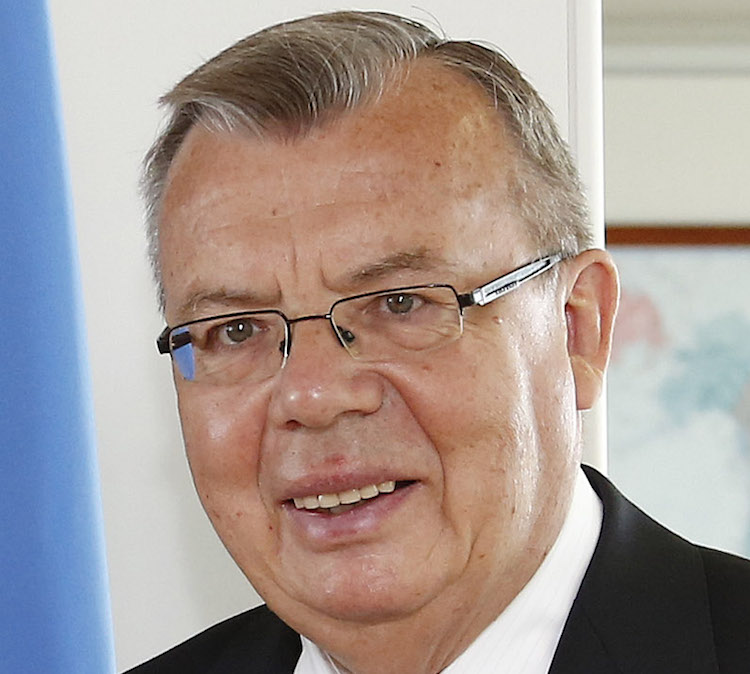By Jaya Ramachandran
GENEVA (IDN) — “Journalists and media workers, in particular women, are facing heightened risks since the Taliban’s political takeover of Afghanistan,” a group of UN human rights experts has warned and called on all States to provide urgent protection to Afghan journalists and media workers who fear for their lives and are seeking safety abroad.
The experts have urged all governments to “take strong and swift action to protect Afghan journalists who face persecution, including by expediting visas, assisting with evacuation and keeping their borders open for those who wish to leave Afghanistan”.
Recalling several resolutions on the safety of journalists adopted by the Human Rights Council in recent years, the eight experts called on the Council to uphold its own commitment and do more to address the growing threat to the safety of journalists in the country.
The experts are: Ms. Irene Khan, Special Rapporteur on the promotion and protection of the right to freedom of expression; Fionnuala Ní Aoláin,Special Rapporteur on the promotion and protection of human rights while countering terrorism; Clément Voule, Special Rapporteur on the rights to freedom of peaceful assembly and of association; and the. Working Group on discrimination against women: Ms. Melissa Upreti (Chair), Ms. Dorothy Estrada-Tanck (Vice Chair), Ms. Elizabeth Broderick, Ms. Ivana Radačić, and Ms. Meskerem Geset Techane.
The experts said: “Reports of targeted killings of journalists and their family members, home raids, threats and intimidation in areas controlled by the Taliban have sharply increased in recent months. This is taking place in a context where Afghanistan is already considered one of the most dangerous countries for journalists.”
They want the Council to consider setting up an investigative and monitoring mechanism for accountability for all human rights violations that have been taking place, including attacks, reprisals and violence against journalists and media workers. Accountability for human rights violations is critical not only for individual justice but also the prevention of future violations.”
Emphasizing the crucial prevention role of the Human Rights Council, they called on the Council and all States to do their utmost to preserve the hard-won gains for media freedom, including for women journalists and media workers.
At a special session, the Council adopted on August 24 a resolution on strengthening the promotion and protection of human rights in Afghanistan, in which it expressed grave concern at all violations and abuses of human rights and international humanitarian law in Afghanistan and called for full respect for the human rights.
In the resolution, adopted without a vote, the Council expressed grave concern at all violations and abuses of human rights and international humanitarian law in Afghanistan and called for full respect for the human rights of all individuals, including women, children and persons belonging to ethnic, religious and other minority groups.
It strongly urged all parties to the conflict to respect their obligations under international law, including international human rights law and international humanitarian law, as applicable, and further urged them to respect the right to liberty of movement and freedom to leave the country.
However, the experts said, this resolution “fails to address the specific risks faced by journalists and human rights defenders in the country”. They added: “We are deeply worried about the threats and systematic human rights violations faced by female journalists, as they may be targeted for working in the media or simply being a woman in public life.”
The experts stressed: “The safety of journalists, women and men alike, human rights defenders and gender equality activists must be a key consideration of their engagement on the human rights situation in Afghanistan. It is imperative for all States to stand firmly with the people of Afghanistan”.
Meanwhile, the Committee to Protect Journalists (CPJ) on August 26 called on the Taliban to immediately cease using violence against journalists and allow them to cover the critical news from Afghanistan freely and without fear.
The CPJ said on August 25 Taliban fighters had assaulted Ziar Khan Yaad, a reporter with the privately owned broadcaster TOLO News, hitting him on his back and waist with their rifles and slapping and punching him in the face as he interviewed day labourers in the Shahr-e-Naw neighbourhood in Kabul. When Yaad identified himself as a journalist, the Taliban continued to beat and insult him, Yaad said. He told CPJ he was left with back pain but did not seek medical treatment.
The Taliban fighters confiscated the phones, camera, microphones, and personal belongings of Yaad and Baes Maji, a camera operator who accompanied him, according to those sources. [IDN-InDepthNews – 04 September 2021]
Photo: Afghans in Germany protesting against Taliban violence, August 14, 2021. Source: Wikimedia Commons.
Visit us on Facebook and Twitter.
We believe in the free flow of information. Republish our articles for free, online or in print, under Creative Commons Attribution 4.0 International, except for articles that are republished with permission.

